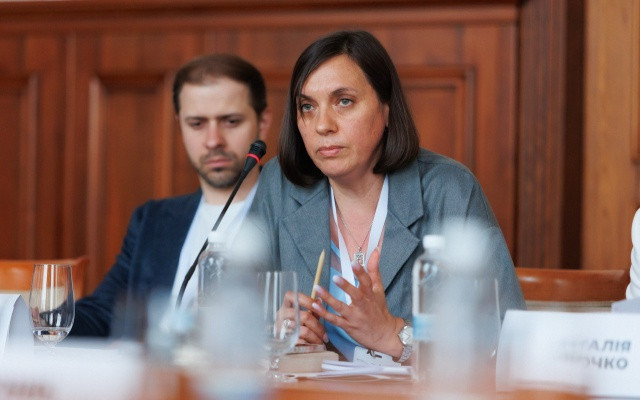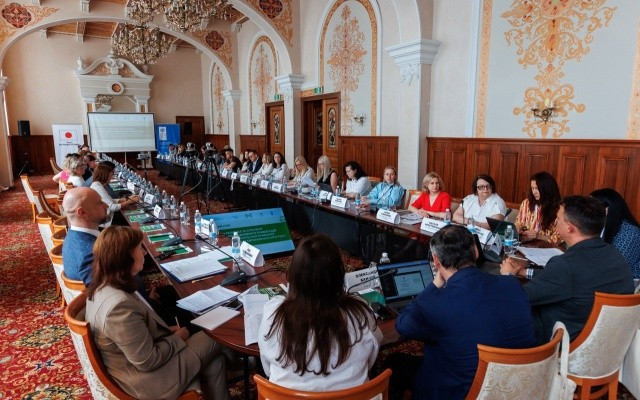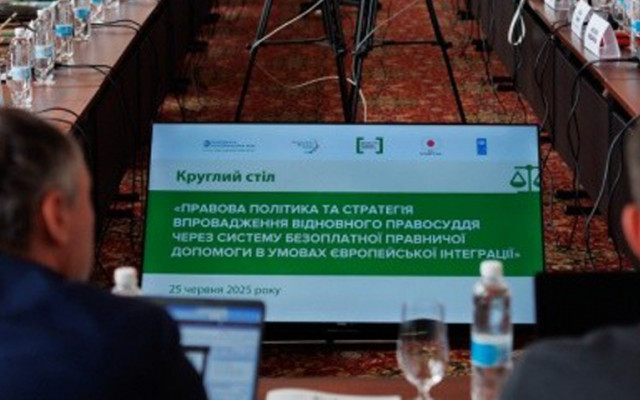
Restorative justice: why victims refuse to participate and what to do about it



The application of restorative justice programs for minors must take into account not only the interests of the offender, but also the needs of the victim. But are the conditions for this always in place?
The answer to this question was sought by Larisa Gretchenko, the chairman of the Committee on family law of the Ukrainian National Bar Association, during the round table discussion «Legal policy and strategic implementation of restorative justice through the system of free legal aid in the context of European integration», held on June 25.
Her speech focused on the problem of unjustified delays in entering information into the Unified Register of Pre-trial Investigations based on statements made by the legal representatives of minor victims. The advocate cited an example where such a statement was mistakenly forwarded to the juvenile police as a regular citizen's complaint. This made it impossible to conduct urgent investigative actions, appoint experts, and take other necessary measures, which ultimately led to the violation of the rights of the child who had suffered harm.
Despite explanations about the possibility of participating in the Restorative Justice Program, the minor victim refused to participate in the reconciliation procedure. According to L. Gretchenko, this reaction was caused by a loss of trust in the law enforcement system, which did not provide the expected support and timely response. Repeated appeals, the need to appeal the inaction of the pre-trial investigation authorities, and additional efforts to obtain victim status only reinforced this distrust.
«The restorative approach in the Ukrainian justice system should be more widely applied, not limited to criminal proceedings, but also extended to cases of administrative offenses. The concept of restorative justice is applicable to cases of bullying, petty theft, and petty hooliganism involving minors, - noted the chairman of the UNBA Committee. - This will allow, at an early stage of conflict with the law, to focus on the child's awareness of the unlawful nature of their actions, the restoration of violated rights, compensation for the damage caused, and the search for common solutions to harmonize relations between the victim, the offender, and society, and prevent criminal offenses in the future».
According to L. Gretchenko, an analysis of rulings in bullying cases in 2024 shows that courts consider the offender's apology to the victim as grounds for a verbal warning instead of an administrative penalty. Such examples confirm the willingness of the parties to the conflict to reconcile and demonstrate the potential for scaling up the best restorative practices.
© 2025 Unba.org.ua Всі права захищені
"Національна Асоціація Адвокатів України". Передрук та інше використання матеріалів, що розміщені на даному веб-сайті дозволяється за умови посилання на джерело. Інтернет-видання та засоби масової інформації можуть використовувати матеріали сайту, розміщувати відео з офіційного веб-сайту Національної Асоціації Адвокатів України на власних веб-сторінках, за умови гіперпосилання на офіційний веб-сайт Національної Асоціації Адвокатів України. Заборонено передрук та використання матеріалів, у яких міститься посилання на інші інтернет-видання та засоби масової інформації. Матеріали позначені міткою "Реклама", публікуються на правах реклами.